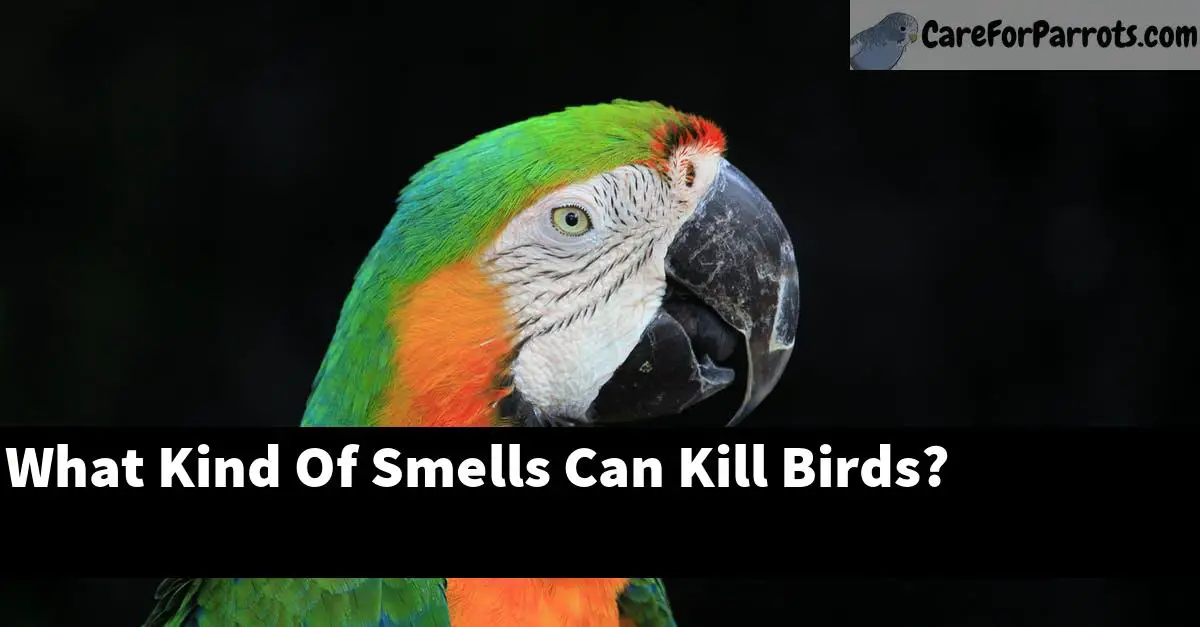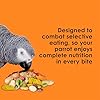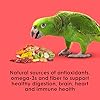Certain smells can be deadly to birds, including ammonia, chlorine, and gas.
Table of Contents
What kind of smells are toxic to birds?
There are a few different types of smells that can be toxic to birds. Some of the most common are fumes from oil, gas, or paint; chemicals such as pesticides or herbicides; and food that has gone bad.
What kind of smells can kill parrots?
There are a number of things that can kill parrots. Some of the more common things that can kill parrots are:
• Poisoning from plants or other animals
• Injury from objects or animals
• Heatstroke
• Freezing
Are there any smells that are lethal to birds?
There are a few smells that are lethal to birds. One example is hydrogen sulfide.
This gas is often released from rotting organic material, such as dead animals, and it can be fatal to birds. Other smells that can be deadly to birds include ammonia, which is released from decomposing organic material, and hydrogen cyanide, which is produced when organic material is burned.
What are some common household chemicals or products that release fumes that can kill birds?
There are a number of household chemicals or products that can release fumes that can kill birds. Some of the more common offenders include paint thinners, cleaning products, aerosols, and pesticides.
Paint thinners release fumes that can quickly kill birds if they are inhaled. Cleaning products can also contain strong fumes that can kill birds if they are inhaled.
Matiniy 2 Pcs Pirate Parrot on Shoulder Life Sized Artificial Parrot Toy for Costume Dress-up Accessory for Halloween Party(Multicolor)
$14.99 (as of 10/02/2026 19:25 GMT +03:00 - More infoProduct prices and availability are accurate as of the date/time indicated and are subject to change. Any price and availability information displayed on [relevant Amazon Site(s), as applicable] at the time of purchase will apply to the purchase of this product.)Bird Toys, Parrot Toys for Large Birds,Natural Corn cob and Loofah Slices Bird chew Toys for African Grey Parrots, Macaws, Cockatoos, Amazon Parrot and other Small and Medium-Sized Parrot (Colorful)
$12.97 ($12.97 / count) (as of 10/02/2026 22:01 GMT +03:00 - More infoProduct prices and availability are accurate as of the date/time indicated and are subject to change. Any price and availability information displayed on [relevant Amazon Site(s), as applicable] at the time of purchase will apply to the purchase of this product.)Kaytee Fiesta Parrot Food, Nutritious and Fun Blend, Supports Skin, Feather, Digestion, Brain and Heart Health, 4.5 pounds
16% OffAerosols, such as hairspray and perfume, can release dangerous chemicals that can quickly harm birds if they are inhaled. Pesticides can also contain toxic fumes that can be harmful to birds if they are inhaled.
How do I know if my bird has been exposed to a toxic smell?
If you are concerned that your bird has been exposed to a toxic smell, the first step is to determine the source of the smell. If you are able to identify the source of the smell, you can then take steps to remove or neutralize the source of the smell.
If you are unable to identify the source of the smell, you may need to consult a veterinarian.
What should I do if I think my bird has been poisoned by a smell?
If you think your bird has been poisoned by a smell, the first thing you should do is call your veterinarian. The bird may have ingested a poisonous substance, and may need to be treated.
Additionally, you may want to look for any signs of poisoning, such as drooping feathers, staggering, or weakness. If you find any signs of poisoning, you should take the bird to the veterinarian immediately.
How can I prevent my bird from being exposed to deadly fumes?
Some tips to help prevent your bird from being exposed to deadly fumes include:
1. Make sure your bird’s cage is well-ventilated.
2. If your bird is kept inside, make sure the cage has proper ventilation, and keep the windows closed during warm weather to keep the bird inside as much as possible.
3. If your bird is kept outside, make sure the cage has proper ventilation, and keep the windows open during warm weather to allow the bird to enjoy the fresh air.
4. Do not allow your bird to fly near industrial plants, gas stations, or other areas where dangerous fumes are present.
Summary
A bird may be killed if it inhales a smell that is deadly to birds. Some smells that can be deadly to birds include ammonia, chlorine, and gas.
























